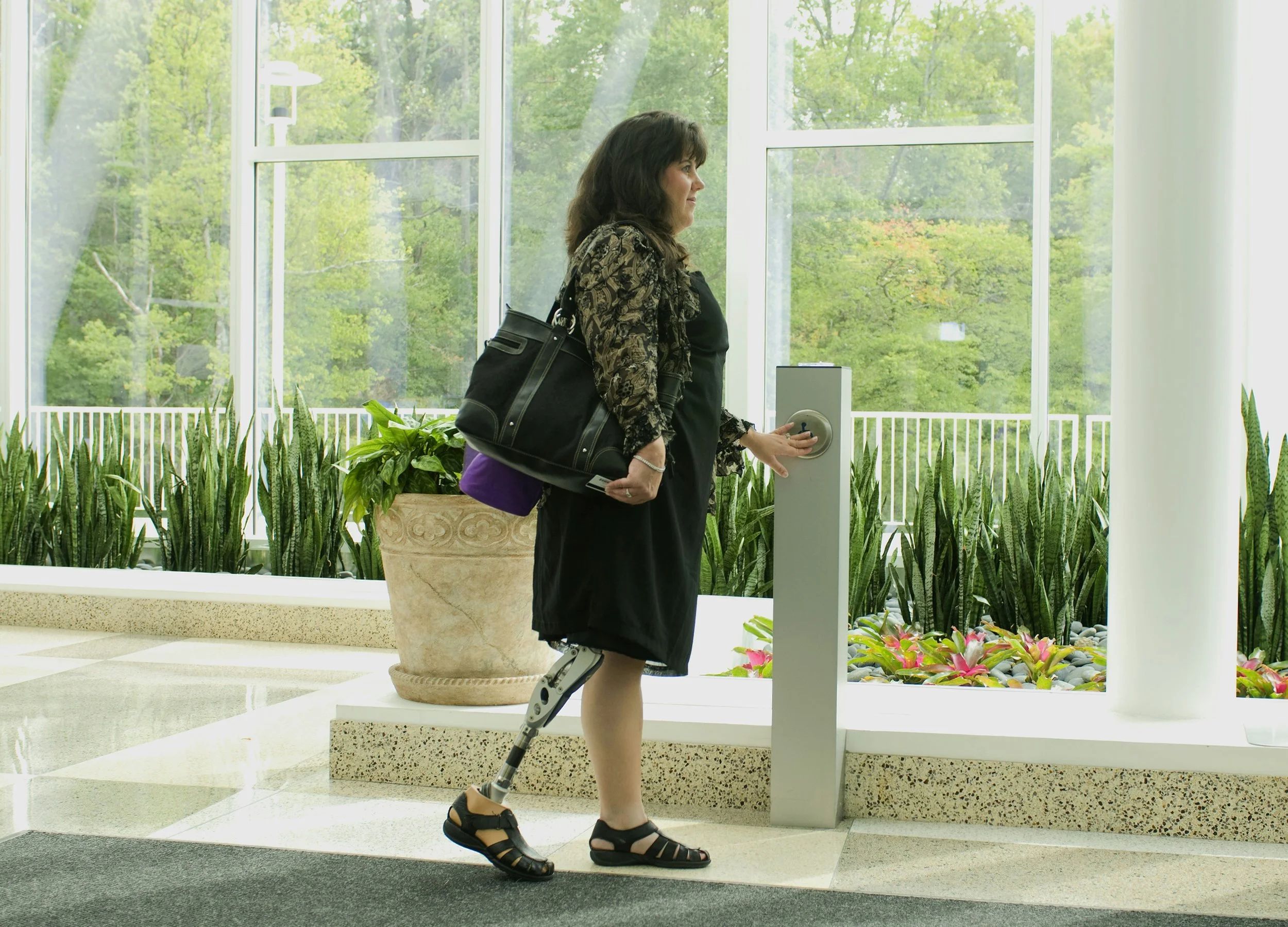Michigan's statewide network of Centers for Independent Living (CILs) are community-based, non-profit organizations that help Michiganders with disabilities live full, independent lives. Operated by and for people with disabilities, CILs provide essential, life-changing services that not only help people avoid institutionalization, but also enable them to secure employment, pursue education, and contribute to Michigan's economy.
In order to do this work, the CILs rely on government funding, the bulk of which comes from the state. That funding is now in jeopardy. The budget passed by the Michigan House includes a 42% cut to CIL funding. This would be devastating for Michiganders with disabilities who rely on their local CIL for the services and supports they need to participate to the fullest extent possible in the everyday activities of work, home, family, and community.
The fact is, disability is not a partisan issue. That the Republican majority in the Michigan House passed a budget that drastically underfunds what people with disabilities in Michigan need cannot be attributed solely to political party. After all, people across the political spectrum have disabilities of all kinds, and everyone has the potential to end up with a disability due to a myriad of circumstances beyond their control such as a car accident, illness, or surgery.
What is likely at play regarding these short-sighted cuts is what might most charitably be termed an imagination gap. The issue of disability, even for Michigan lawmakers, can be abstract. If you don’t have a disability and/or don’t have a loved one with a disability, then the issue of disability, and the consideration of what people with disabilities need, becomes theoretical.
If you have no problem walking and have free use of a personal vehicle, chances are you don’t spend much time worrying about how someone with a spinal cord injury who cannot walk on their own gets to medical appointments. If your child has excellent eyesight, you likely don’t wonder how a child with low-vision navigates the school building they share. If you don’t live each day with debilitating depression and anxiety, you probably don’t wake up in the middle of the night worried about how difficult it can be to get mental health treatment.
This isn’t for lack of empathy or caring. After all, there are few if any people who don’t know someone with a disability of some kind and fewer, still, who don’t want people with disabilities getting the supports they need to survive and thrive. But chances are that even if you, personally, want to help, you do not have the expertise, money, and coordination of resources necessary to ensure that people with disabilities are not left stranded in their homes for lack of accommodations in their communities.
That responsibility is too large for any individual to bear. That is why this responsibility falls to the larger society. In fact, many people probably just assume that there is, somewhere, a mechanism in place to provide help to the people who need it.
And there is. The CILs are that mechanism. But the CILs rely on support from the larger society in the form of tax dollars, and receiving those tax dollars depends on elected leaders who value the work that the CILs do.
Without funding, each CIL will be forced to make tough decisions about what programs and services must be cut. Will they cut their youth transition programs where CILs work with students with disabilities to prepare them for life after school? Benefits counseling, where CILs help individuals with disabilities navigate the complex systems involved with applying for and maintaining various support benefits for independent living, including Social Security Disability and Medicaid? Skills training? Housing assistance? They may also be forced to cut staff, which will directly impact individuals with disabilities employed by the CILs, people who already face obstacles in employment.
Government budgets are never just a neutral list of numbers. They are moral documents in that they make clear what a society—or, at least, the elected body writing the budget—values. These cuts will have a devastating impact on the independence of Michigan’s most vulnerable citizens.
Advocates are calling on the Michigan Senate and Governor Whitmer to restore the funding for CILs in the final budget. They urge lawmakers to recognize the invaluable role CILs play in building a more inclusive and prosperous Michigan for all residents. Contact your state legislators and tell them that they must make clear that they value the lives and independence of disabled Michiganders by approving a final budget that fully funds the CILs.




